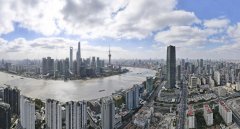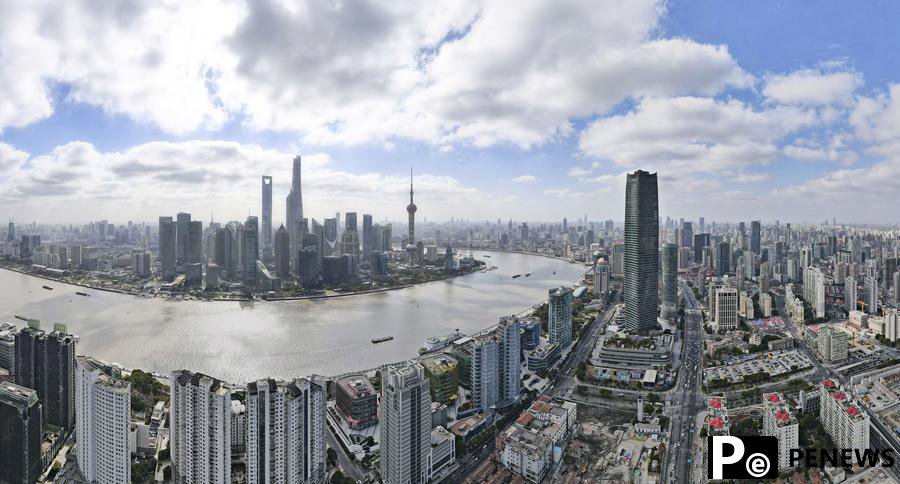Home>>
Greener, smarter innovations from Chinese brands shine at Europe's largest consumer electronics expoBy Che Yunlong, Chu Yi, Du Zheyu (Xinhua) 13:08, September 09, 2024
BERLIN, Sept. 9 (Xinhua) -- Imagine a refrigerator that opens immediately after the magic command of "Open Sesame" is given. But this time, simply say "Open," or just give it a gentle knock, then the door swings open automatically.
This is just one of the various cutting-edge innovations on display at the ongoing 2024 IFA, or Internationale Funkausstellung Berlin, Europe's largest consumer electronics exhibition. Everyday household appliances, enhanced with imaginative designs and advanced technologies, left visitors amazed at how these familiar items could be transformed into such extraordinary products.
As a barometer of technological innovation in the consumer electronics industry, this year's IFA, which is scheduled to conclude on Tuesday, has attracted more than 1,800 companies from around the world and notably Chinese firms, which have a strong presence and showcase a wide range of products that blend artificial intelligence (AI), sustainability, and premium quality.
INNOVATION
Outside the exhibition halls, huge banners from Chinese consumer electronics giants like Hisense, Midea, and TCL welcomed visitors alongside signs marking the 100th anniversary of IFA. Upon entering, visitors were at once impressed by prominent Chinese brands such as Haier dominating entire exhibition zones. These led many to wonder: what has made Chinese consumer electronics so appealing to the European market?
At Haier's exhibition booth, smart and interconnected home appliances like televisions, air conditioners, and dishwashers were presented in an immersive and interactive manner. The Chinese company has logged eight consecutive years of rapid growth in Europe and now holds a 9.1-percent market share.
Haier Europe CEO Neil Tunstall told Xinhua that the consumer electronics industry has been global. There are specific needs for European consumers, and Haier has accelerated the innovation in Europe by bringing new ideas here.
The speed and efficiency of Chinese firms have enabled them to bring new technologies to the European market swiftly. "What I experienced is that Chinese companies usually are a little bit faster. So they see the opportunity, they start to work on it, and then they are able to bring innovations to market more quickly," he said.
Similarly, Hisense Europe CEO Han Jianmin noted that the global home appliances sector is undergoing rapid transformation, driven by advancements in technologies like AI. As consumers increasingly seek personalized, smart products, the industry is shifting from individual products to user-centered, scenario-driven solutions.
Han said that Chinese consumer electronics companies, through continuous innovation and brand-building, are moving up the global value chain and presenting a fresh image in international markets.
Analysts pointed out that these Chinese companies, built on years of accumulated expertise and a keen understanding of evolving consumer needs, have leveraged technological innovations and efficiency advantages of China's business environment. This has allowed them to rapidly enhance their products' intelligence and sustainability, thereby establishing a solid foothold in the European market.
LOCALIZATION
With globalization in full swing, more Chinese consumer electronics companies are turning to international market as a key strategy for business expansion and further development. Besides focusing on developing high-end products, many of them have also adopted localization strategies to integrate themselves into the European market.
According to Tong Bo, a senior executive of Midea's global business division, the internationalization of consumer electronics products is a long-term process. Many Chinese companies, including Midea, have spent over a decade bringing their own products to European consumers. He underlined that this market in Europe remains highly competitive, and Chinese brands still face significant challenges in their expansion efforts.
Chinese companies have gained valuable localization experience in both product development and marketing. For instance, some companies develop household solar energy storage systems specifically for German consumers to meet their rising demand for renewable energy solutions. Additionally, partnerships with local icons -- such as Hisense's collaboration with Volkswagen to design a Beetle-shaped refrigerator -- help Chinese companies increase their brand influence.
Tong emphasized that working with well-known local brands allows Chinese companies to develop products tailored to European consumers, and using familiar marketing strategies makes their offerings more relatable and easier to accept.
In addition, Chinese firms collaborate with European manufacturers through acquisitions to boost their market presence and enhance their brand image. Such a strategy saves time and costs, and lowers the likelihood of cultural clashes while entering an unfamiliar market.








